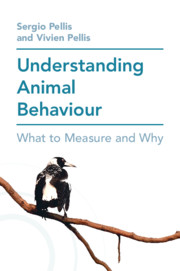Book contents
- Frontmatter
- Contents
- Preface
- Acknowledgements
- 1 What Is the Problem and What Is the Solution?
- 2 Behaviour as a Means, Not an End
- 3 The Deep Structure of Behaviour
- 4 The Brain Is Not Alone
- 5 Bringing It All Together: Steps in the Descriptive Process
- 6 What of the Future?
- Epilogue
- Appendix A: Eshkol-Wachman Movement Notation and Descriptive Analysis
- Appendix B: Practice, Practice, Practice
- References
- Index
6 - What of the Future?
Published online by Cambridge University Press: 11 May 2021
- Frontmatter
- Contents
- Preface
- Acknowledgements
- 1 What Is the Problem and What Is the Solution?
- 2 Behaviour as a Means, Not an End
- 3 The Deep Structure of Behaviour
- 4 The Brain Is Not Alone
- 5 Bringing It All Together: Steps in the Descriptive Process
- 6 What of the Future?
- Epilogue
- Appendix A: Eshkol-Wachman Movement Notation and Descriptive Analysis
- Appendix B: Practice, Practice, Practice
- References
- Index
Summary
Traditionally, to test whether the hypothesised organisation of behaviour generates the behavioural markers selected for measurement has required experiments or comparisons across species, sex and age. In the last couple of decades, important strides have been made in developing ways to create virtual animals, either on a computer screen or as freely moving robots, that can be programmed to produce the behaviour of interest. If the programmed rules are sufficient to produce the behaviour of real animals, then that adds independent evidence for the proposed organisation. Novel testing methods is one direction for the future. Another is to identify additional organisational principles. For example, some level of randomness seems essential for the production of effective functional behaviour. A challenge for the future is to understand how random processes are integrated with the causal processes described in the preceding chapters.
Keywords
- Type
- Chapter
- Information
- Understanding Animal BehaviourWhat to Measure and Why, pp. 98 - 112Publisher: Cambridge University PressPrint publication year: 2021

